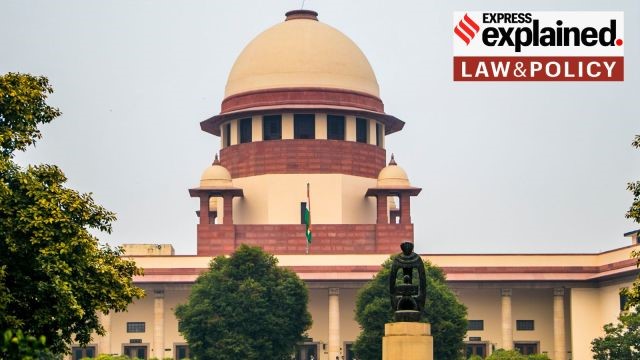Remission and the Supreme Court’s 2025 Ruling

- 24 Feb 2025
In News:
Recently, the Supreme Court directed states with remission policies to consider the premature release of prisoners even if they don’t apply for remission beforehand.
What is Remission?
- Remission refers to the reduction of a convict's sentence by the government before the term is completed. It does not nullify the conviction, but shortens imprisonment.
- It is governed by:
- Section 473 of BNSS, 2023 (earlier Section 432 of CrPC, 1973) – empowers state governments to grant remission.
- Articles 72 and 161 of the Constitution – empower the President and Governors respectively to remit sentences.
- Section 475 of BNSS (earlier Section 433A CrPC) – restricts remission for life convicts found guilty of offences punishable by death until 14 years of imprisonment are completed.
Background: SC’s Suo Motu Intervention
- The Supreme Court in 2025, in the suomotu case In Re: Policy Strategy for Grant of Bail, altered the interpretation of remission rules to address prison overcrowding.
- The Court held that states must consider remission for eligible convicts even without a formal application, if a remission policy exists.
Shift in Judicial Interpretation
- Earlier rulings (Sangeet v. Haryana and Mohinder Singh v. Punjab, 2013) required a convict's application for remission.
- The 2025 judgment acknowledges that many state prison manuals already mandate prison authorities to initiate remission review.
- It recognized that failing to consider remission proactively could lead to arbitrary discrimination, violating Article 14 (Right to Equality).
Key Guidelines Issued by the Supreme Court
- Suo motu Remission:States must automatically assess eligibility under remission policies—no application needed.
- Mandatory Remission Policy:States without existing remission policies must formulate a comprehensive one within two months.
- Conditions for Remission Must Be:
- Reasonable, non-oppressive, and clearly defined.
- Based on factors like motive, criminal background, and public safety.
- Aimed at rehabilitation and prevention of recurrence.
- Safeguards Against Arbitrary Cancellation:
- Minor breaches shouldn’t lead to automatic cancellation.
- Notice and hearing must be given before cancellation.
- Transparency:
- Legal aid bodies must monitor remission cases.
- States to maintain real-time digital data on remission.
Significance and Implications
- The ruling helps streamline remission processes and could contribute to decongesting Indian prisons, which are heavily overcrowded.
- It ensures uniformity and fairness in the exercise of executive powers related to sentencing.
- Reinforces constitutional values of equality and procedural fairness for prisoners.
Note:
- Remission ≠ Pardon: Remission reduces sentence, doesn’t erase conviction.
- Articles 72 & 161: Concern constitutional remission powers (President & Governor).
- BNSS Sections 473 & 475: Replace CrPC Sections 432 & 433A, relevant for state remission powers.
- Suo motu action by SC: Taken to address systemic prison overcrowding.
- Article 14 invoked: To ensure equitable treatment of eligible prisoners.
